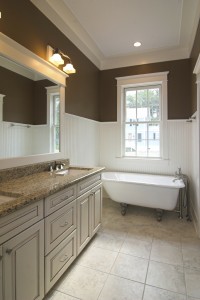 Bathroom building regulations - what are the rules when undertaking home improvements or renovations to your bathroom?
Bathroom building regulations - what are the rules when undertaking home improvements or renovations to your bathroom?
Many homeowners think that as long as they are not making changes to the outside of their home that they don’t have to inform the Council about work which is being carried out, but this is not the case.
Although planning permission will not be needed unless you are building your bathroom in a new extension, Building Control may have to be involved, depending on what you are doing.
If a kitchen or bathroom is added in a room which previously was not a bathroom or kitchen it is likely approval by building control for building regulations will be needed. The bathroom and kitchens building regulations approval is needed to ensure adequate drainage, ventilation, electrical safety, fire safety and structural stability requirements are met.
Here's our simple bathroom building regulations guide.
Always remember, of course, to keep in touch with your local authority building control office at all times throughout the course of your refurbishments.
Regulations when installing a new bathroom
Navigate this Document
One of the jobs which Building Control need to know about is when you are switching around the layout of your house and putting a bathroom where there wasn’t one before.
This covers things like moving a bathroom upstairs in an older property, or adding an en-suite to a bedroom.
There are many different regulations which have to be followed, and most are about making sure the bathroom is drained and ventilated properly.
Electrical regulations also apply when you are putting lighting or other electrical items such as showers in your new bathroom.
Regulations on bathrooms and floor structures
One of the main issues which concerns Building Control and bathrooms is making sure that the structure of your floor is up to bearing the weight of any new bathroom.
A full bath weighs a considerable amount, and the regulations are there to make sure that you are kept safe.
Before work starts, you will have to submit an application to Building Control stating what you intend to do, and they may ask for a report from a structural engineer.
If you are unsure whether the work you are planning comes under the remit of Building Control, call the local Council and ask to speak to someone.
Regulations on electrics in the bathroom
One of the biggest changes to bathroom building regulations came into force in 2005 with what is known as “Part P”.
This part of the rules covers electrical work in the bathroom and means that any major electrical work such as installing new lights, a new electric shower or underfloor heating has to either be carried out by a qualified electrician, or certified by them after the work has been done.
These requirements are designed to cut the number of people who are electrocuted by bodged bathroom wiring, but will add substantially to your costs.
Expect to pay around £400 for an electrician to install a new electric shower for you, and supply you with the correct paperwork to send to Building Control.
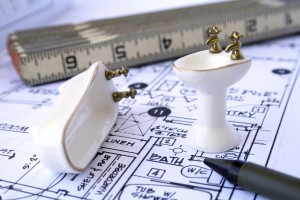 Building regulations bathrooms.
Building regulations bathrooms.
When it comes to fitting a new bathroom suite or completely refurbishing a bathroom there are a few things you should bear in mind.
There are a number of issues relating to building regulations bathrooms and possibly planning permission too.
This is with regards to the legalities which may be involved which you may not be aware of.
Bathrooms Building Regulations
In recent years home improvement has become increasingly subject to building regulations and planning permission.
These are the primary issues which you need to consider with regards to building regulations bathrooms, when carrying out a bathroom refurb.
Part P Building Regulations And Bathrooms
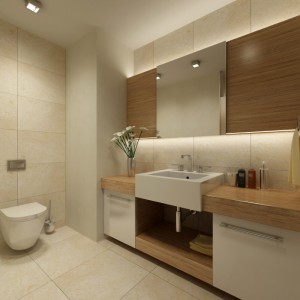 Part P building regulations relates primarily to electrical works and a major part of this legislation directly affects electrics fitted in bathrooms and kitchens (i.e. areas where water is likely to come into contact with electricity).
Part P building regulations relates primarily to electrical works and a major part of this legislation directly affects electrics fitted in bathrooms and kitchens (i.e. areas where water is likely to come into contact with electricity).
The legislation can be largely broken down into 4 areas:
- All electrical work must be carried out by a competent person
- Minor electrical works (such as electric showers and extractor fans in bathrooms and kitchens), must be certified with a minor works certificate which should be issued to you by your local electrician.
- Quality electrical materials must be used.
- Shower rooms, bathrooms and kitchens are considered 'special locations' and nearly all electrical works carried out in these areas must be notified to building control - to be on the safe side, ensure that you obtain the relevant certification.
- This is important not only from a safety perspective but also to prevent any problems with missing paperwork if you come to try to sell your property and are unable to verify any bathroom modifications work.
- If upgrading your electric shower check with the manufacturers instructions to see if any notifications are required to remain compliant.
- Good quality showers will normally have information accompanying them about this matter.
Bathrooms and External Ventilation Regulations
When fitting a bathroom, shower room, wetroom or cloakroom, it is essential that external ventilation of some sort is available.
Whilst most bathrooms and shower rooms etc, will normally have an external window fitted in any event, if there is no window present it is imperative that an extractor fan is fitted.
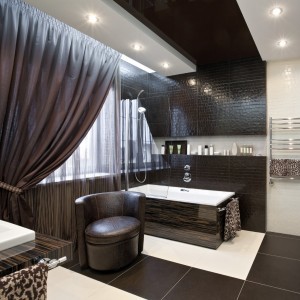 En Suite Bathrooms Building Regulations
En Suite Bathrooms Building Regulations
An ensuite bathroom cannot lead directly into a bedroom (with just one door into the bathroom), if it is the only bathroom in the house.
Building Regulations Bathrooms With WC
Bathrooms with a toilet fitted in them must not open directly into a kitchen, living room or dining room.
Need A Bathroom Fitter?
Now that you have a good idea of the building regulations bathrooms situation, if you need a bathroom fitter and are looking for quotes from plumbers or bathroom fitters you can use our free service to compare quotes from several local people.
You are not obliged to accept any quotes from tradesmen but comparing quotes using Top Tradespeople free quotes services could save you time and save you money by helping you get the best deal on bathroom fitting.
Building Control Costs
Building Control is a matter for your local Council, and the charges and costs are not the same in each area.
Check on your local Council website; many now allow you to submit applications and track their progress online, and pay using a card over the internet.
Building control charges are usually based on the value of the work being done.
Expect to pay around £100 for electrical work to be checked and the certificate rubber stamped, up to £500 plus for the fees associated with moving a bathroom from one area of the house to the other.
These is no escaping these fees, as anyone buying your house in the future will need to see the certificates from the Council.
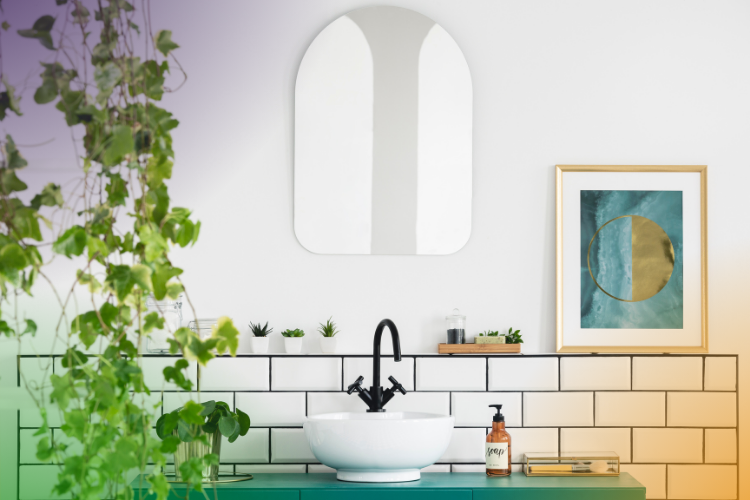
 Bathroom building regulations - what are the rules when undertaking home improvements or renovations to your bathroom?
Bathroom building regulations - what are the rules when undertaking home improvements or renovations to your bathroom?





